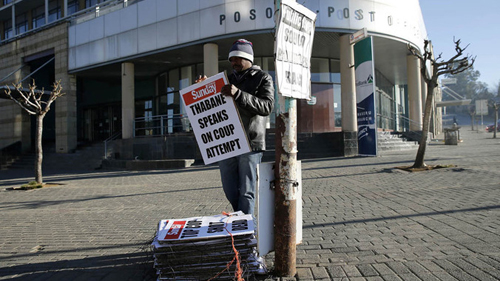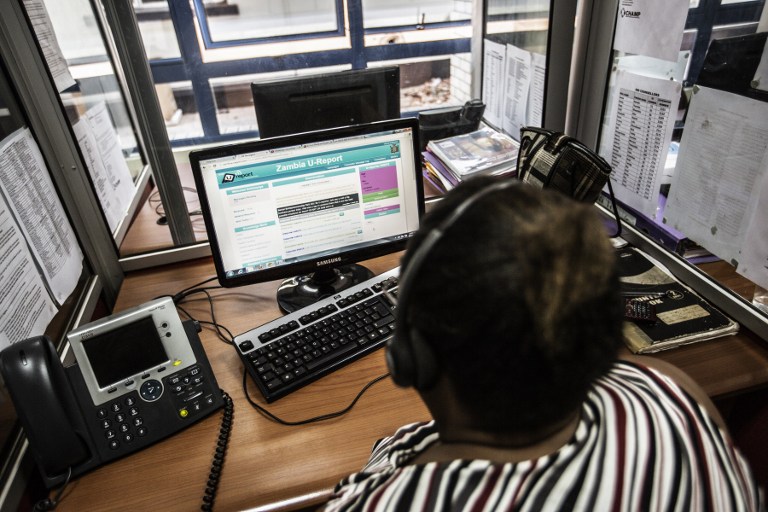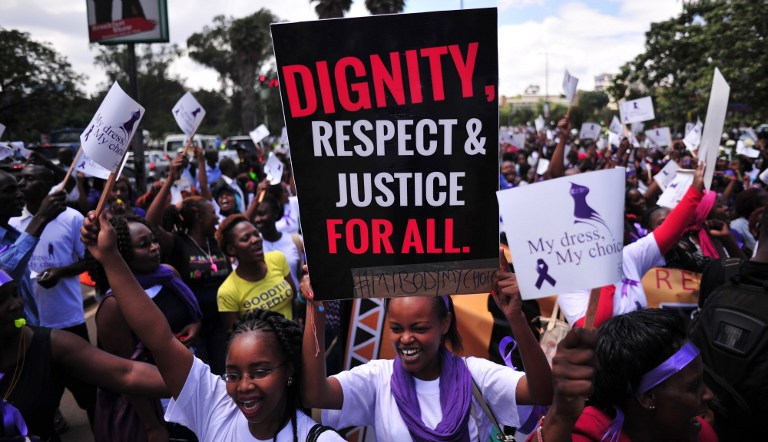The barbs are flying at me faster, flung by a hostile crowd.
Here I am, the lone Western correspondent in this tiny African kingdom that still feels volatile since the August 30 attempted military coup that sent the nation’s prime minister scurrying next door into South Africa.
I am suddenly on trial, as a kangaroo court deals me a harsh lesson – and reveals what a minefield Lesotho is for journalists covering this crisis.
Specifically, I’m forced to defend my reporting on the latest, Hollywood-worthy claims: “Lesotho hunts foreign ‘mercenaries’, fears assassination plot”.
A top government official alleged that Nigerian and Ghanaian soldiers-for-hire had slipped into the country, armed to the teeth, to hatch a plot to assassinate Lesotho’s leaders – to throw the tiny nation into even deeper crisis and harpoon the February 2015 elections, already moved up two years earlier by South African Deputy President Cyril Ramaphosa, who is mediating to restore some semblance of “lasting peace” here.
For the “mercenaries” claim, I’d asked two people if there was any clue on the identity of these alleged assassins.
Thesele Maseribane, the third leader of the ruling tripartite coalition (who’s also the minister of gender and youth, sports and recreation) floated two nationalities: Nigerians and Ghanaians. Then I spoke to the police’s assistant commissioner of police, Sello Mosili, who confirmed this. So that’s what I reported – their allegations:
Some online media – in Lesotho, too – focused on the nationalities. Even worse, one weekly here turned my story’s allegation into their story’s fact: “Police hunt Nigerian, Ghanaian mercenaries.”
That sensationalist twist unfortunately sparked anxiety among the hundreds of Nigerians and Ghanaians living in Lesotho. They say it’s led to unkind comments from Basotho and feeling threatened on the streets.
When I’d heard about the “unintended consequences” of my reporting, I met a police official and leaders of the two expatriate communities. To help make things right, I suggested a press event: I’ll explain what happened. Maybe the police could discuss the lessons learned – about revealing too much, too soon?
I’m also a journalism trainer here, so I saw the potential for a productive discussion about the dangers of incitement (another real concern) – and choosing words carefully during these tense times.
But I would regret this. Unwittingly, I organised my own public lynching. My good intentions were trampled on.
At this moment, some 30 leaders and members of the two communities have filled the room to debunk the claim.
Even a Nigerian diplomat from Pretoria is here to defend his country.
My defence – that I published allegations, attributed to highly credible sources, and identified the police source by name – isn’t enough.
Indeed, it’s the Lesotho Mounted Police Service (LMPS) spokesperson seated beside me who pours oil on the fire. He stands to read from an authorised, one-page statement. The police are still pursuing reports of foreign mercenaries, he says, with no nationalities named. Then his final paragraph, with its inflammatory kicker: “The LMPS distances itself from the information appearing in the AFP newspaper [sic] dated 13-19 November 2014 that the mercenaries are from Nigeria and Ghana.”
Comfort the afflicted
Not deny the substance, mind you, but distance itself. A vague, carefully chosen term, it seems.
Even worse, the police appear to have confused the article I wrote for Agence France-Presse – a round-the-clock international news agency, not a “newspaper” – with the article that appeared in the November 13-19 edition of that Lesotho weekly, which reprinted my allegations as fact.
“That doesn’t exonerate your actions,” says one Nigerian community leader-turned-prosecutor, facing the crowd, his voice filling with emotion.
From the audience, a community member eyeballs me: “If someone is attacked for this, their blood will be on your hands.”
A third chides me: “You should just apologise – but you seem unwilling to.”
That’s right. I stand by my reporting. In front of this crowd, though, I do pause to reiterate my sincere regret for the “unintended consequences” of my reporting.
I have a conscience, after all, and abide by the journalistic creed: afflict the comfortable, comfort the afflicted. I’d never want a story of mine to harm innocents. Especially not a minority, given my affinity for them.
Was this a show trial? An inquisition? Verbal vigilantism? I’m still struggling for words to describe what happened to me last week. Was it just a traumatic professional incident?
More importantly, a great revelation slaps me in the face: this whole ordeal illuminates just how dangerous this environment is. Not for me – because I can leave. Even flee.
Instead, imagine my Basotho journalism colleagues, who are woven into the fabric of this monoethnic, monolingual society, perched in a remote mountain enclave completely surrounded by South Africa.

I can handle this public assault adequately. Yet how could a local colleague weather such intimidation? How to cope in this climate? Where the homes of public figures are attacked at night – by grenade or bullet – yet no one is arrested? Where an adversarial radio station is trashed, yet no one is held to account? Where police arrest a prominent editor and reporter for a day – for accurately reporting a criminal case?
A few weeks back, a leading local reporter called me to describe how she was publicly accused of taking bribes from one political faction to report negatively about another. She broke down, crying: “I’m scared, I can’t go anywhere.”
Now, for the first time, I feel this intimidation.
Why does all this matter? Because Lesotho is the latest crisis mediated by the Southern African Development Community (SADC). Stabilising this little tinderbox is in South Africa’s interest – and SADC’s too.
Sandbag the messengers
However, Basotho society is highly polarised, with duelling accusations of what one side is doing to the other.
Yet there’s no neutral arbiter to separate fact from fiction. What’s true, what isn’t. Who’s telling the truth and who isn’t.
In short, the Basotho – and Southern Africa itself – need a robust, confident media, to help connect the dots. Yet if one local journalist – or any member of civil society – were to dare to “get to the bottom of things,” but then angers the wrong person, who would protect them?
Don’t get me wrong: even after this public assassination of my character, I’m still enjoying the adventure of living on the continent the past three years, especially among the Basotho.
Yet the fact remains: at that moment, all three communities needed a scapegoat. To “refute and debunk” the damage purportedly done to the reputations of Nigeria and Ghana, and duress caused for their diaspora communities. From any diplomatic fallout, perhaps the police also felt compelled to deny responsibility.
So I was fingered as the culprit. The true outsider. The foreign correspondent. So expendable. If not shoot the messenger, then sandbag him.
“These were just allegations,” my most vocal defender, Tsebo Mats’asa, director of the Media Institute of Southern Africa’s Lesotho chapter, tells the crowd. “We should thank Ntate [Mr] Jordan for being brave to come explain what happened.”
Brave? No, I was foolish.
The most absurd part of this event is that I actually co-organised and invited many of the people – to witness my own public lynching.
As the meeting ends, and they clear the room, several young journalists approach me.
“You see? This is what they do here,” says one. “They’ll tell you something, and you publish it. But if others don’t like it, they’ll deny they told you that. They’ll blame you.”
I’ve learned many lessons from this experience, but there is one worth underscoring: it’d be irrational for my colleagues ever to put their necks on the line. Their trepidation also drives me forward, to continue probing the reality.
Foolish to speak out
Then, as I lick my wounds the next day, I get a call that lifts my spirits. From a Nigerian who has lived here for years – and observed my inquisition, in silence.
“I wanted to tell you that I was very proud of you, that you didn’t chicken out,” he says. “I see you’re a man who believes in what he has done, who knows he was right, and no amount of pressure will make him surrender.”
I listen, speechless. Then express my gratitude for some of the most meaningful and fortifying words of my career.
The Nigerian continues. “Unfortunately, this is quite common in Africa. In this environment we live in, some people, but not everyone, lack integrity and principles. The Basotho journalists would tell you they weren’t surprised like you were, to see what happened to you yesterday. It’s almost a continuous way of life here.”
Then I ask him, respectfully: Why didn’t you speak up? And are you now willing to be quoted in this piece, by name?”
No, he prefers anonymity.
“Because you see the way they came after you,” he says. “That same angry display would be turned against me.”
Indeed, I finally understand. The sad reality is, it would require rare courage – or foolishness – for anyone to speak out. Just when Lesotho needs them the most.
Michael J Jordan is a freelance journalist based in Lesotho. Visit jordanink.wordpress.com for his coverage of the three-month Lesotho crisis.






